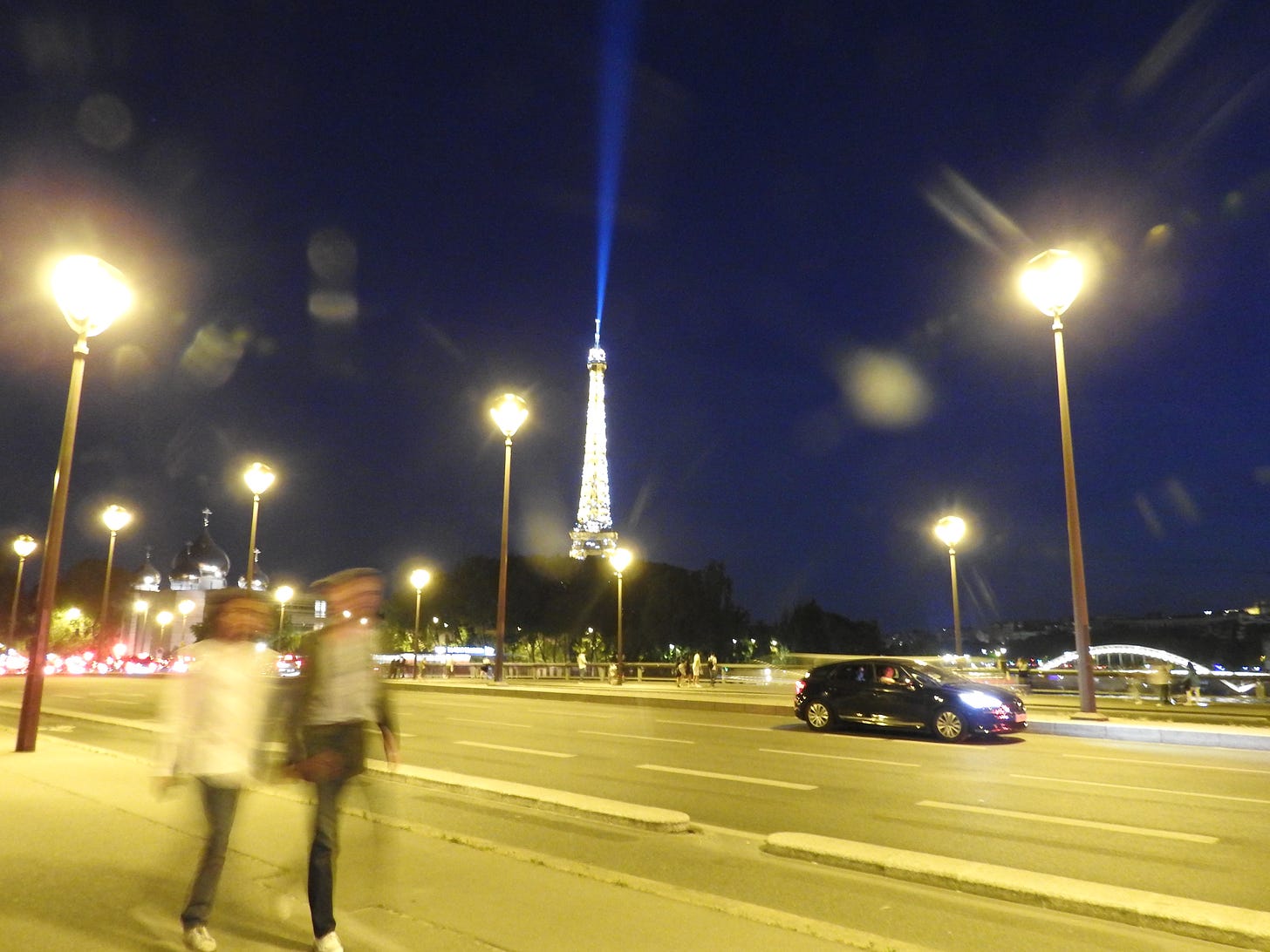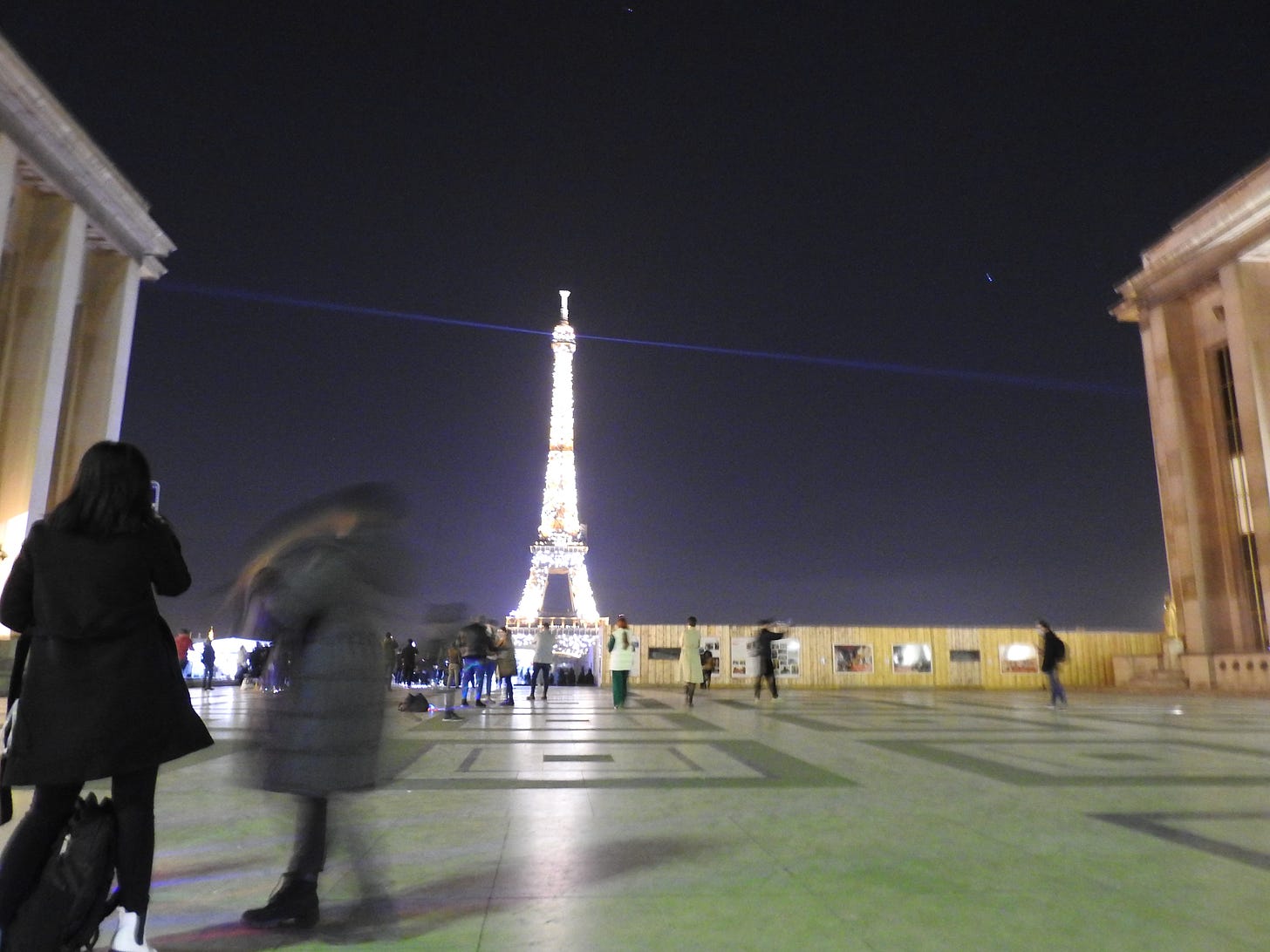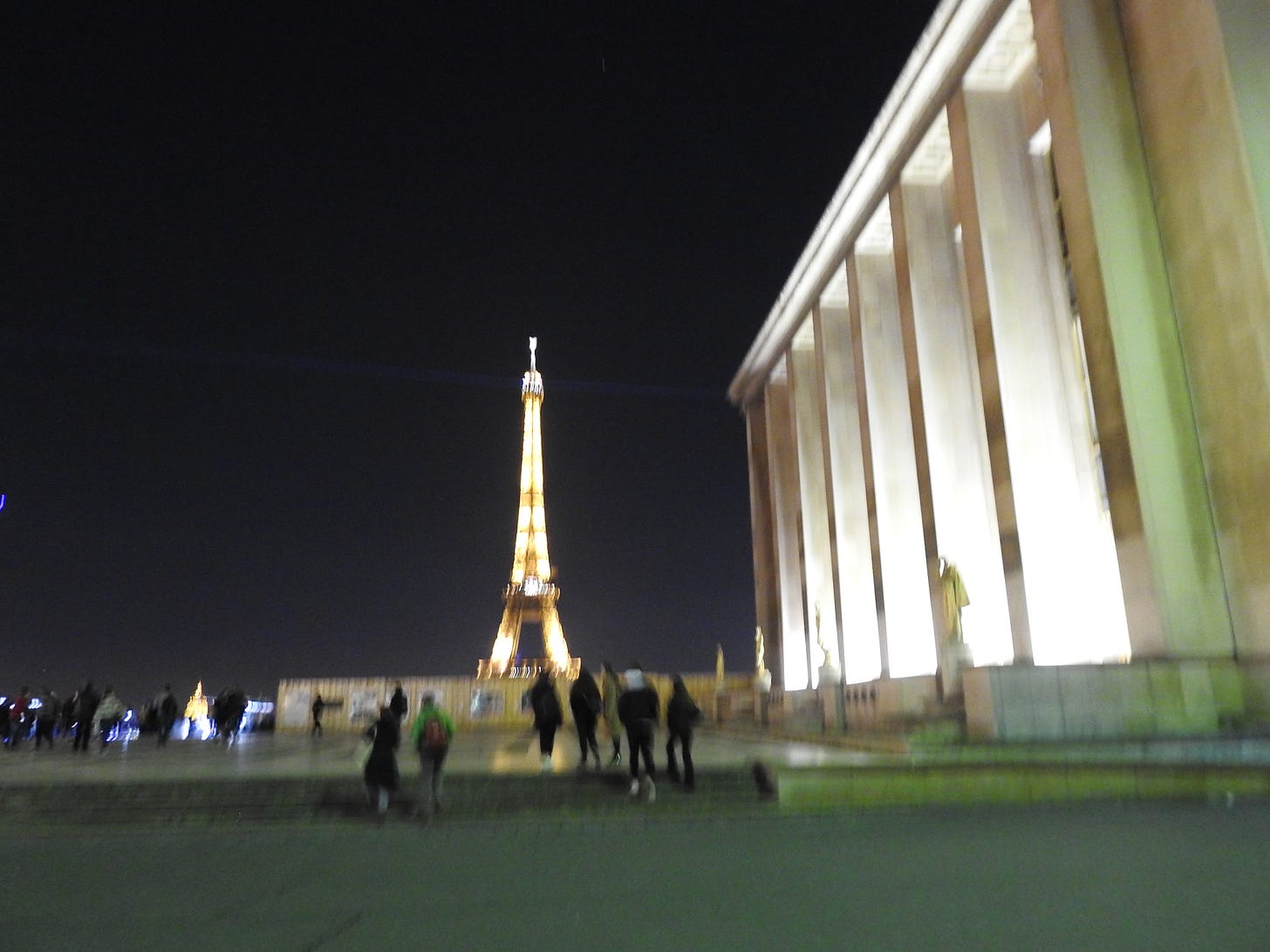Why is midnight a critical hour? I had been to the opera – a long performance a long way from home. I was relieved to be back in my apartment two minutes before the clock struck midnight. As I shut the door, I wondered what I thought was going to happen to me after midnight. It’s like Cinderella’s coach reverting to a pumpkin and my opera clothes reverting to rags, or perhaps the werewolves of Paris will paw at my door. Well, “after midnight … we’re gonna cause talk and suspicion, give an exhibition, find out what it is all about,” sang J.J. Cale in 1966. Eric Clapton covered it in 1970, J.J. Cale re-released it in 1972, and Clapton re-released his version in 1987.The song was always in my head.
Midnight, that elusive moment when one day gives way to the next, has held a symbolic and practical significance across cultures, time periods, and contexts. It is often seen as a "liminal" time, when the boundary between today and tomorrow is blurred, and when certain behaviours or actions are imbued with mystery, risk, or consequence. It's the witching hour when supernatural forces are at their strongest or when transformations occur, turning good to evil or whatever. Beyond these narratives – true or false – there are real reasons why midnight has become critical in the context of daily life.
Biological Shift
As the clock strikes midnight, a shift occurs in our circadian rhythms. Our bodies are typically winding down for the night at this point, preparing for rest. There’s a biological reason why staying up too late feels “off” after midnight. By this hour, the body’s production of melatonin, the hormone that regulates sleep, is well underway. The transition from wakefulness to sleep is facilitated by this hormonal or biological shift, and staying up past midnight can disrupt this process, making it harder to engage in activities that require alertness and focus the next day.
After midnight, our decision-making abilities, memory, and overall cognitive function start to decline. Activities that are perfectly manageable before midnight may feel riskier or less productive after the clock strikes twelve.
Midnight marks the end of the optimal window for getting restful sleep needed to function at our best the next day. Sleep is crucial for mental, emotional, and physical restoration. So, while there's nothing inherently magical about what can or can't be done before or after midnight, our biological systems function best with regularity, and midnight is often seen as the dividing line between the day’s activity and the start of a restorative rest cycle.
Societal Shift
In some countries, midnight marks the boundary for social norms or legal restrictions. For example, curfews often begin after midnight, signaling that public spaces or establishments like bars or restaurants should close, or that certain activities must cease, such as public noise. These societal rules often reflect a desire to respect quiet hours, ensure safety, and restore order.
Time and Transitional Shift
The hour of midnight often carries emotional weight as it marks the transition into a new day. Midnight symbolizes the boundary between today and tomorrow, and that "cutoff" can have deep significance for people. The stillness of the hour is the pivotal point when endings and beginnings simultaneously occur; the evening hours are ending and the morning hours are beginning. The previous day ends completely – it’s final – it’s the end of one day, the beginning of another. There’s mental clarity in that transition, and a sense of finality about what’s been done and what’s yet to come. In this sense, midnight is a critical hour because it signifies a moment of closure, while also serving as an opening for new possibilities.
Millions of Midnights
While the physical boundaries of midnight are simply the demarcation between two days, the emotional, psychological, and cultural significance makes it feel different from any other hour. Ultimately, what we can’t do after midnight that we can do before depends on each individual and their situation. Midnight might invite introspection and release of one day, but it also creates a threshold for crossing into another day, another possibility. Or the millions midnights we experience in our life are mostly never even given a single thought, nary a second of consideration.
Photographer: Martina Nicolls
Can’t see the whole article? Want to view the original article? Want to view more articles? Go to Martina’s Substack: The Stories in You and Me
More Paris articles are in my Paris website The Paris Residences of James Joyce






